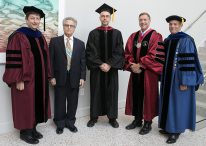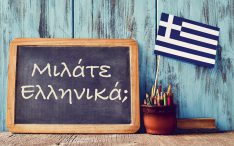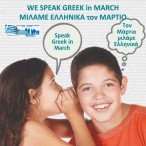Tag: Greek Language
-

Greek To Be Taught as Foreign Language in Russian Schools Starting January 1, 2017
According to sources, the Russian Minister of Education, Olga Vasilieva recently signed and approved the Greek language into the curriculum of Russian schools. Starting January 1, 2017, Greek will be taught as a second language in Russia’s primary and secondary schools. It is a decision that has been on the table of discussion for sometime, as Greek and…
-

Nikolaos Panou, PhD, installed as tsantes endowed Professor in Greek Literature and Language at Stony Brook University
The Stony Brook community came together to celebrate the formal installation of Nikolaos Panou, Ph.D., the inaugural Peter V. Tsantes Professor in Greek Literature and Language. “It is an understatement to say that I am delighted that Nikolaos Panou has been named to this distinguished professorship,” said President Samuel L. Stanley Jr. during the ceremony.…
-

Greek Native Offering Language Lessons in Jasper: ‘I Just Want to Share my Culture’
Greek native Kostas Souliaris moved to Canada from Greece five years ago. He settled in Jasper, Alberta, where there is a healthy Greek population and decided that it was about time that Greek language lessons were offered in the town. Although the details are yet to be finalized, so far he has put together a loose syllabus for his classes…
-

Speak Greek in March campaign spreads across Australia and overseas
The Speak Greek in March (SGM) campaign was conceived in order to stimulate the Greek community, the school system and government to give greater priority to the speaking, learning and teaching of the Greek language. This initiative was started in 2015 by individuals and representatives of literary and cultural organisations within the Greek community. The…